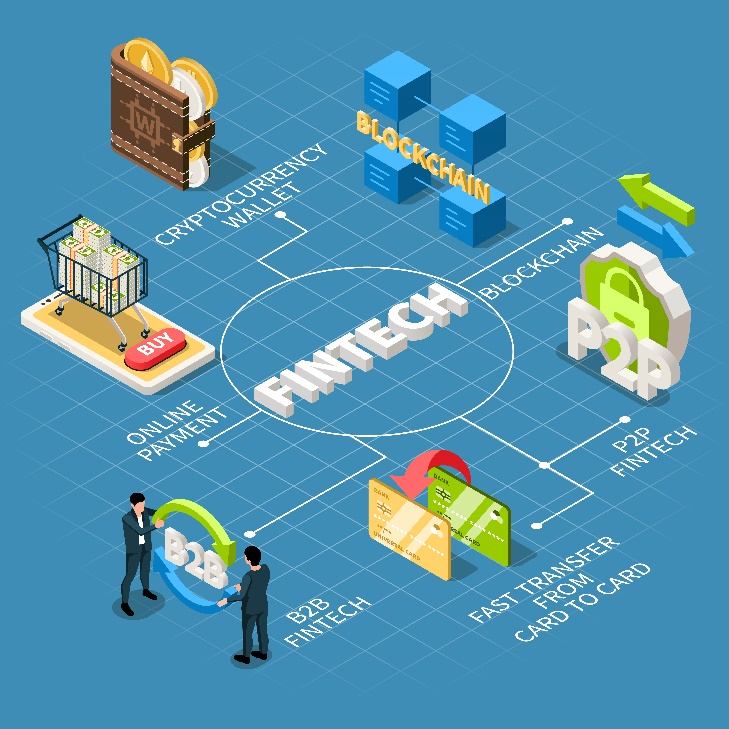Over the past ten years, the banking sector has seen a significant transformation because to financial technology, or FinTech. Emerging technologies and ever-growing demand for easy facilitation of financial services have made FinTech take center stage in the operation and management of economies through banks. This blog discusses how FinTech influences modern banking, showing how different parts of the industry are influenced by FinTech and what it means for consumers aged between 20 to 50 years who can spend money.

1. The Evolution of FinTech in Banking
First, FinTech was a small area using technology to provide some sort of financial services. Earlier, it helped people do simple things online, like paying bills and sending money. But now, with the rapid development of technology, FinTech has evolved into an influential sector in the areas of banking. With mobile banking apps and blockchain technology, FinTech has facilitated processes, reduced costs, and enhanced the customer experience.
2. Digital Banking: Convenience at Your Fingertips
The huge impacts of FinTech on modern-day banking include digital growth in banking. Gone are those days when for every minute of banking need, one needed to visit a branch; today, most activities in banking can be done online by using handy mobile apps and websites. This switch to digital banking is very convenient. This way, one can manage accounts, transfer funds, and apply for loans by just sitting in their home. For people in the age bracket of 20-50 years these days, who value saving time, convenience is a very important factor.
3. Personalized Financial Services
FinTech helped the banks to provide services that are tailored to each of the customers' needs. Big data and artificial intelligence allowed the close look at what customers are doing, what they like, and thus offer them specific financial solutions. It can be special investment advice, personal savings plans, or concrete financial products. With FinTech, banks can serve their clients more properly. This is actually enhancing customer experience and building stronger customer loyalty.

4. Enhanced Security and Fraud Prevention
With more people now turning towards digital banking, security concerns are growing. FinTech firms have, therefore, developed enhanced methods for security that can protect customer information and prevent fraud. Fingerprint scanning, data coding, and constant monitoring have become very common in banking these days. These new developments help to keep the money information of the customers safe, thus instilling a feeling of trust in the digital banking services. For consumers between 20 and 50 years old, who might be worried about online fraud, these improved security features offer reassurance.
5. Financial Inclusion: Bridging the Gap
FinTech has helped a lot in facilitating financial services to all. Digital platforms have facilitated people who do not have access to banks. In most developing areas, where normal banks are absent, people have been able to participate in the financial system through FinTech services such as mobile money and peer-to-peer lending. This is beneficial for more young people as they now get to use financial services, while they might not have had easy access to regular banks in the first place.
6. Challenges and Future Prospects of FinTech in Banking
It has several key advantages of FinTech for banks, but simultaneously, it is able to bring challenges in. Among issues that are important to be tackled by both the companies of FinTech and banks, there are rules that would be obligatory to follow, concerns regarding data privacy, and continuous innovation. Moreover, changing technologies will surely place banks in the need to adapt continuously to be competitive within fast-changing environments. The future of banking with FinTech is bright; new technologies such as blockchain, AI, and quantum computing are still going to change this industry even further.

Conclusion
Financial Technology plays a very important role in today's banking. It makes things easier and safer, helps more people access financial services, and provides personalized options. FinTech really changed the world of banking for the good of customers and banks. For people aged 20-50 years who can spend, FinTech has provided many tools and services that keep them managing their finances so easily and safely. As the industry keeps changing, it is going to be quite interesting to see how FinTech even further changes banking, with newer ideas and easier access for people all over the world.

Smart Home, Smart Investment: Financial Benefits of Energy-Efficient Upgrades

Business Owners: Protect Assets Legally

The Pros and Cons of Peer-to-Peer Lending

Real Estate Crowdfunding Risks

Unlocking the Hidden Potential of Startups: A Guide for Discerning Investors

AI-Powered Financial Advice: Benefits and Drawbacks

Savings Strategies for Single-Income Households
